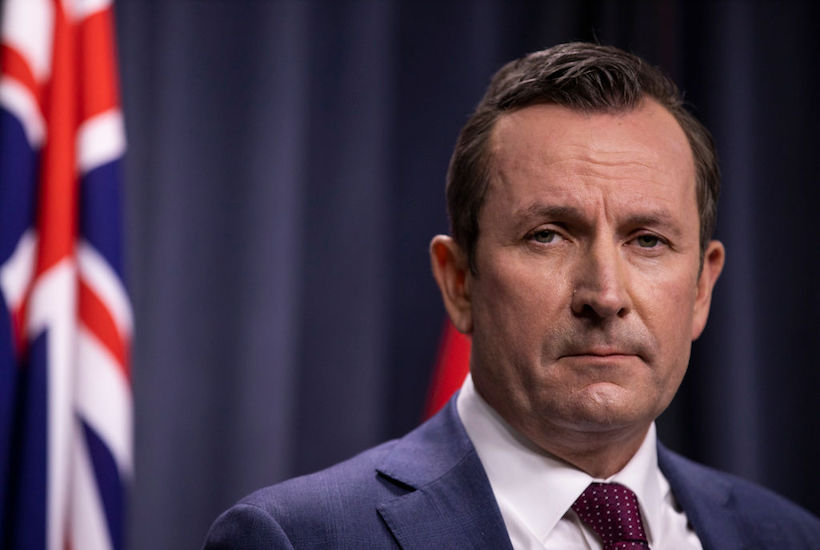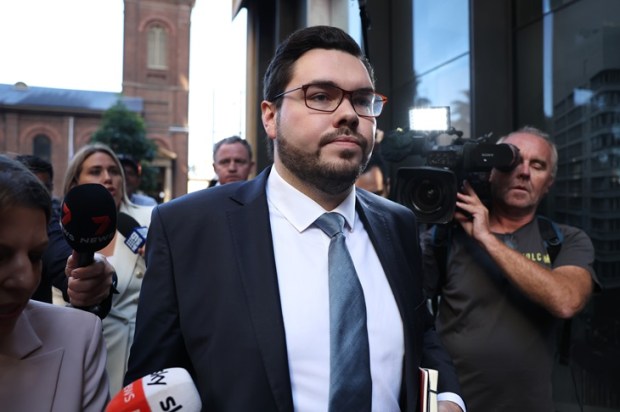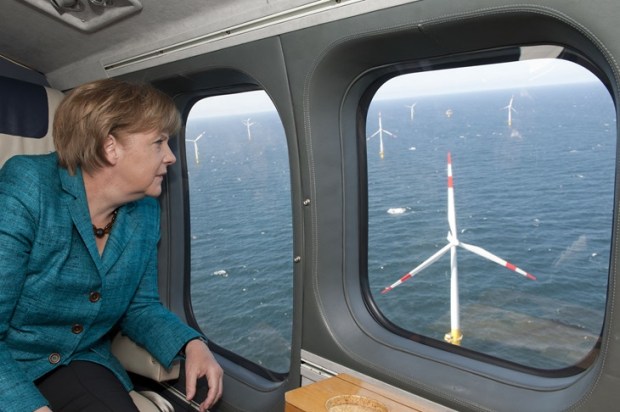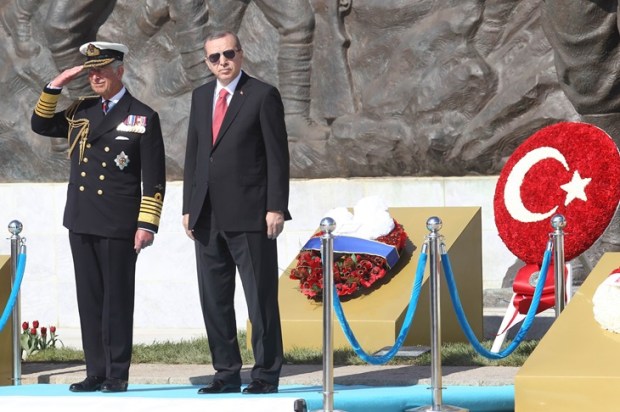The 1980s in Western Australia were heady days. Riding off the success of winning the rights to host the America’s Cup, Perth was booming. Beneath this attractive façade, however, a premier with a carefully cultivated charisma engaged in a world of secret deals, bypassing the proper processes of government in what became known as ‘WA Inc’.
In his book The Godfather, Quentin Beresford provides a detailed analysis of the life of the popular, bright young Labor premier of the time, Brian Burke. Summing up his years in office, Beresford writes:
[H]is public persona concealed his private actions. He was one of the first wave of politicians to utilise the power of the media, becoming one of the undisputed masters of political spin.
Significantly, though, Beresford notes that Burke’s story is also a “cautionary one about the vulnerability of democracy,” how its institutions can be captured and then manipulated to turn a blind eye to secrecy, deceit and obfuscation. WA Inc was more than crony capitalism. It was a modus operandi for the ‘whatever it takes’ approach to the acquisition and maintenance of power. As Beresford describes: “[Burke] established a system of special relationships with entrepreneurs as a means of staying in power. By controlling the deal-making himself, he could generate a flow of donations to the Labor party to ensure the re-election of his government.”
Fast forward some 30-odd years and parallels are emerging between the Burke era and the rule of Premier Mark McGowan. While in office, Burke was Australia’s most popular premier. So is McGowan, who has had approval ratings around 90% in local polling over the best part of a year, figures echoed by Newspoll on the weekend.
As premier, Burke enjoyed more than enthusiastic support from the WA media. At the height of the WA Inc scandal, The West Australian came under criticism for its lack of robust reporting on the issue. As Beresford points out, that paper at the time was owned by Robert Holmes à Court’s Bell Group, which was a major donor in Burke’s attempt to rescue the notorious merchant bank Rothwells, owned by another of Burke’s WA Inc mates, Laurie Connell. Upon leaving office in 1988, an associate editor of The West Australian, John Hamilton, agreed to write Burke’s memoirs, described as a ‘eulogy’ to him. At the time, The Herald-Sun called him the ‘Premier of Propaganda’.
In the Rothwells rescue Burke was portrayed as a ‘white knight’ premier intervening to safeguard the deposits of small investors. After Rothwells eventually collapsed, the WA State finances were in such dire straits that those same small investors (and the WA public in general) paid for this terrible escapade with, among other things, a ‘WA Inc’ levy on car registrations for years afterwards.
McGowan has faced little scrutiny from WA media outlets. The West Australian has been particularly gushing in its praise, acclaiming him as the great defender against those evil eastern staters who want to give us the virus and steal our GST revenue. McGowan’s hypocrisy over the hard border has been completely disregarded. Guess who made the following statement to the WA Parliament on 18 March last year: “If we close the borders to the East what will happen to our markets of products and supply chains for important goods?” The answer? Mark McGowan. His Health Minister Roger Cook said at the same time: “well there is this little thing called the Constitution… we cannot turn around and say, one Australian cannot meet and visit another Australian.”
In the months since McGowan has taken the opposite approach. WA has become a national joke for the harshness of coronavirus measures that have left it virtually isolated yet cemented his popularity, as detailed in The Spectator Australia last week, pre-Newspoll. When McGowan announced his 5-day lockdown on 31 January for just one case (a security guard working in hotel quarantine), The West Australian aided and abetted the scaremongering in justifying the lockdown, stating that ‘thousands could be infected’ by the security guard.
In announcing the lockdown would be lifted but explaining that restrictions such as mandatory face masks would remain, McGowan alluded to the response to the Spanish influenza epidemic, stating that the measures employed successfully then would be equally successful now. As any student of history would know, comparing the Spanish ‘flu with coronavirus is like comparing apples with not even oranges, but watermelons. Given better population health and a vastly improved medical system, coronavirus has turned out to be far less dangerous.
In Australia, Spanish flu is thought to have killed about 15,000 people from a population of five million. Around the world, deaths are estimated as being over 50 million. As distinct from coronavirus, people in their prime were most at risk from Spanish flu, notably women of child-bearing age. Yet did any journalist raise this with the Premier? Not a chance. The parochial cheering of the WA media is scarily starting to resemble that which surrounded a certain Georgian peasant named Djughashvili during his rule of the Soviet Union.
The owner of The West Australian (and Perth’s Channel 7) is billionaire Kerry Stokes, the same man who has been exempted from WA’s strict quarantine requirements when returning from overseas or interstate, the same Kerry Stokes with whom the McGowan Government has done a deal (along with mining magnate Andrew Forrest) to pump $66 million of WA taxpayers’ money for the redevelopment of an old power station site. The Australian very neatly summarised the controversy and more for eastern staters on the weekend:
A controversial deal to offload the prime East Perth Power Station riverfront development site to local billionaires Kerry Stokes and Andrew Forrest continues to cause headaches for the government, while the caretaker-eve environmental approvals for a big gas project part-owned by the Stokes-backed Beach Energy has only fed perceptions that the government is too close to parts of the business community.
Forrest’s agricultural company Harvest Road Group picked up a $700,000 government grant towards a new aquaculture facility in Albany, and the hydrogen arm of Forrest’s Fortescue Metals Group — which made $US6.6bn ($8.4bn) in underlying earnings in the past six months — has received $2m from WA taxpayers towards its renewable hydrogen mobility project in the Pilbara.
The power station site, perhaps given its proximity to the very heart of Perth, appears to be creating the greatest controversy. The site is located in East Perth, a once very-run down city fringe district that has been transformed, thanks to urban redevelopment, into one of the city’s wealthiest areas. Within walking distance from Perth’s CBD, the old power station is on the banks of the Swan River, surrounded by luxury apartments, upmarket townhouses, offices and cafés. Directly across the water are Optus Stadium, the Crown Entertainment Complex and much more. (Crown – or Burswood Casino, as it was then known — of course, came under the WA Inc microscope, as Beresford recounts, due to the alleged preference for the development given by Burke to another favoured businessman, Dallas Dempster. )
Stokes and Forrest are often seen with McGowan. All three have declared that Australia must not offend China. By developing the power station site the WA Government (as well as Stokes and Forrest) stand to make a killing.
If concern over the closeness of government to certain business figures has returned, so has control of the bureaucracy and the secrecy that goes with it. Beresford estimates that, within his first 18 months in office, Burke personally made 250 new appointments. Quoting historian Marc Bloch, Beresford recounts: ‘a powerful man could not maintain prestige or fortune except by securing for himself, by persuasion or coercion, the support of subordinates bound to his service.’
As Caroline Di Russo has written for the Menzies Research Centre, WA’s chief health officer Dr Andy Robertson is rarely at press conferences and the flow of information regarding COVID-19 is tightly held and controlled. Even during the 5 day lockdown his appearances were rare and brief. This could be due to his statements in the past causing McGowan more than a little embarrassment. In July last year, for example, Robertson gave evidence in the Federal Court that there was a less than 1% chance of COVID-19 returning to WA from States with no community transmission. In October, he told a parliamentary inquiry that WA should open to States with no community transmission. McGowan panicked, so Robertson issued a statement ‘clarifying’ his position and was promptly returned to, as Di Russo put it, ‘political witness protection’.
Further, as Di Russo writes, instead of ensuring government services are effective, McGowan appears totally focused on the March election. In October last year, we had a record number of ambulances ramping at our emergency departments – more than the peak of the 2019 flu season. In September, the Department of Premier and Cabinet advertised for 22 spin doctors at a cost of $2.7m to WA taxpayers. The same Department spent over $100,000 to poll ‘community sentiment’ over coronavirus to determine its response. All the while it was discovered during the lockdown that hotel quarantine procedures meant that security guards were not always required to wear PPE and could have a second job. Add to this the farce of fire-fighters having to social distance while fighting raging bushfires that saw 86 homes destroyed.
Tellingly, Di Russo notes the McGowan Government is the most secretive since the WA Inc days, with volumes of unanswered questions greater than two terms of the previous Liberal government. It promised to pay down debt, yet debt has increased by a third despite lucrative mining royalties and a 2020 budget surplus thanks to booming iron ore prices. It hasn’t laid a single metre of track for Metronet, its much-vaunted public transport system, in four years, despite blowing the budget out by $2 billion. Local government and residents’ concerns about replacing level crossings with ‘sky rail’ bridges, rather than the more effective solution of sinking the rail lines, have been arrogantly ignored.
There was another critical factor that greatly helped Burke and it is also fuelling McGowan’s hubris: a divided and ineffectual opposition. Newspoll places the Liberals in not just a dangerous, but disastrous position. The McGowan Government could command a majority in both houses after the March 13 election, with dire consequences for democracy and transparency.
There are no verifiable claims of wrongdoing by the Premier or his Ministers, nor is The Specator Australia making any suggestions of wrongdoing.
It is a matter of what we might call”the vibe” or, as the famous American baseball coach Lawrence ‘Yogi’ Berra once said, “It’s déjà vu all over again.”
Time will tell.
Dr Rocco Loiacono is senior lecturer at Curtin University Law School.
Got something to add? Join the discussion and comment below.
Get 10 issues for just $10
Subscribe to The Spectator Australia today for the next 10 magazine issues, plus full online access, for just $10.

























Comments
Don't miss out
Join the conversation with other Spectator Australia readers. Subscribe to leave a comment.
SUBSCRIBEAlready a subscriber? Log in